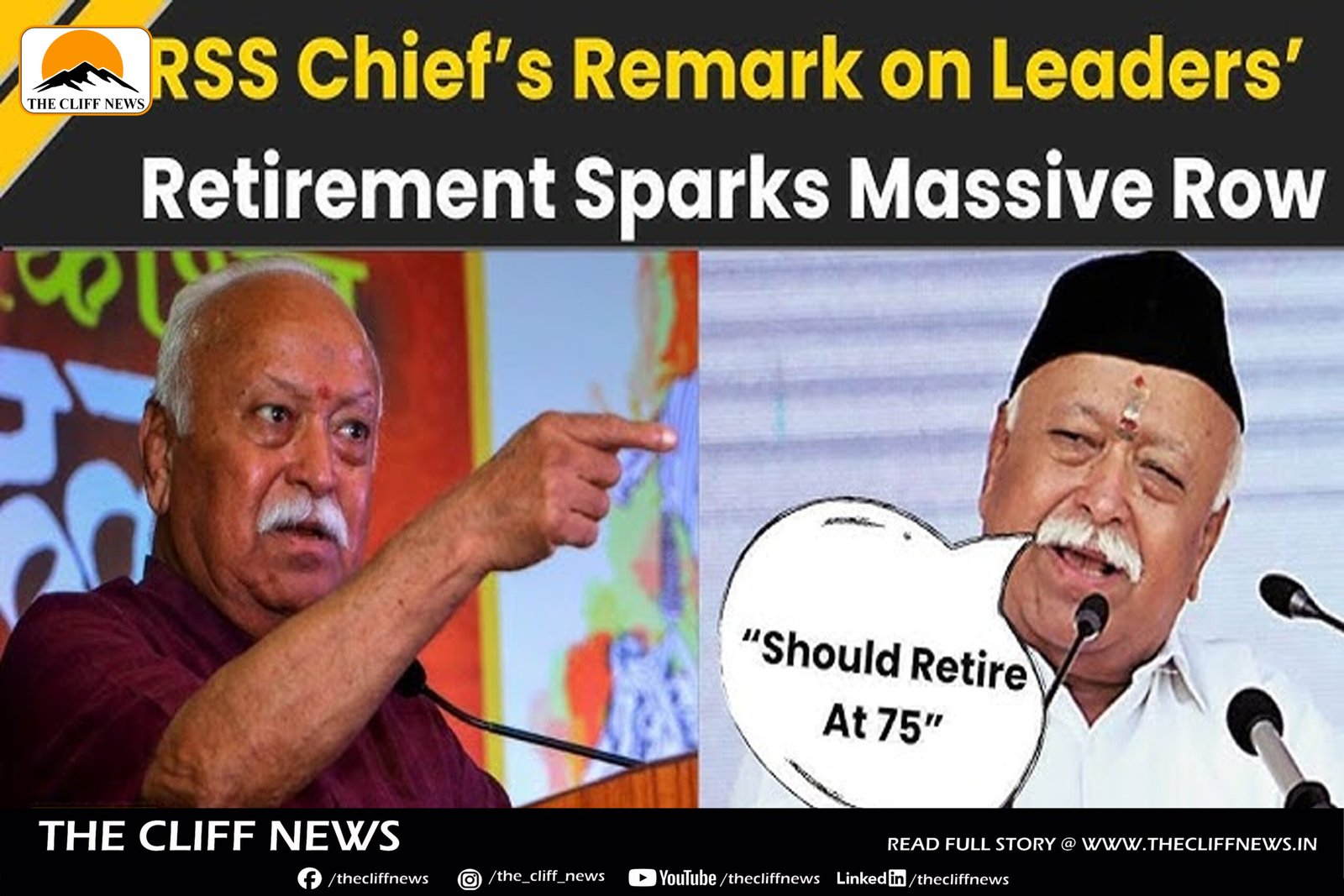Nagpur/New Delhi – A seemingly reflective remark by Rashtriya Swayamsevak Sangh (RSS) chief Mohan Bhagwat at a book release event in Nagpur has reignited the political discourse over retirement norms in Indian politics—particularly aimed at Prime Minister Narendra Modi, who turns 75 this September.
While speaking about late RSS ideologue Moropant Pingle on Wednesday evening, Bhagwat stated, “When you turn 75, it means you should stop now and make way for others.” He recalled Pingle’s humorous take on ageing, saying, “If you’re honoured with a shawl after 75, it means it’s time to step aside.”
Though Bhagwat did not name anyone directly, the comment has been widely interpreted as a veiled suggestion directed at political leaders—most notably PM Modi, who shares the same birth month and year as Bhagwat (September 1950).
Opposition Reacts Swiftly
The opposition was quick to seize on the statement. Shiv Sena (UBT) leader Sanjay Raut said, “PM Modi forced leaders like Advani, Joshi, and Jaswant Singh into retirement after they turned 75. Let’s see if he applies the same rule to himself.”
Congress leader Abhishek Manu Singhvi echoed this sentiment, remarking, “Preaching without practice is dangerous. The BJP enforced a 75-year cut-off for others but is clearly planning to exempt its current leadership from the same.”
Raut also reiterated an earlier claim that PM Modi’s rare visit to the RSS headquarters in March this year was to discuss his possible retirement. However, the BJP dismissed those claims as “routine coordination,” unrelated to leadership succession.
Amit Shah & BJP’s Position
Union Home Minister Amit Shah had addressed the issue in May 2023, asserting, “There is no clause in the BJP’s constitution about retirement at 75. Modi ji will continue to lead till 2029.” He accused the opposition of spreading lies to distract from the BJP’s electoral agenda.
Coincidentally, on the same day as Bhagwat’s remark, Amit Shah, who turned 60 this year, also made a personal statement at a separate event, expressing a desire to eventually dedicate himself to the study of the Vedas, Upanishads, and organic farming—though he gave no timeline for stepping away from active politics.
Context and Interpretations
While Bhagwat’s words sparked intense speculation, those familiar with the Sangh’s internal functioning were divided in their interpretation.
Dr. Shrinivas Khandewale, veteran economist and former professor at Nagpur University, said, “There is no official retirement age in RSS. The BJP, however, set the 75-year norm for its leaders, so naturally this remark has broader implications.”
In contrast, RSS commentator and former swayamsevak Dilip Deodhar downplayed the speculation. “Bhagwat had already clarified five years ago that Modi would be an exception to the 75-year rule. This debate will fade away.”
He cited a private meeting where Bhagwat reportedly told columnists, “An exception proves the rule,” implying Modi’s unique role in Indian politics justifies a departure from precedent.
Political and Public Implications
The timing of Bhagwat’s statement—just months after the 2024 general elections and with several state polls approaching—has deepened intrigue within political circles. While the RSS and BJP function independently, their ideological link often leads to interpretations that influence national discourse.
As Prime Minister Modi approaches his 75th birthday on September 17, all eyes will be on whether the BJP remains consistent with its past practice of retiring leaders at that age—or whether, as some suggest, “rules don’t apply to the rule-makers.”



